Please click on the relevant logos for further information

Why?
Clot-busting medications can help improve and or reverse the damage caused by a stroke caused by a clot in the brain.
What?
ATTEST 2 is a randomised clinical trial comparing two different types of clot-busting medication

Why?
Medications to ‘thin’ the blood can have an unwanted effect on strokes caused by bleeding in the brain. Controlling bleeding is crucial in the first few hours after stroke but there is still uncertainty over the best course of treatment.
What?
DASH is a randomised clinical trial investigating a treatment to reverse the effects of blood-thinning medications.
Why?
A minor stroke where symptoms resolve relatively quickly is called a transient ischaemic attack or TIA. It can be difficult to make a clear diagnosis of TIA.
What?
MRI scanners produce more detailed images of the brain and could prove useful in the diagnosis of TIA.
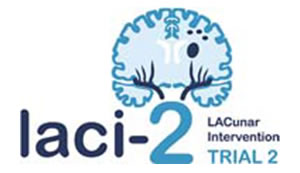
Why?
Lacunar strokes are due to small vessel disease and can be a factor in the development of dementia.
What?
LACI-2 is a randomised clinical trial investigating the use of Isosorbide Mononitrate and Cilostazol as treatments to help prevent progression of small vessel disease and recurrent strokes. Participants are randomised to a combination of one, both or none.
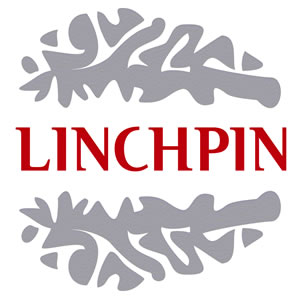
Why?
To understand more about the effect of bleeding in the brain.
What?
Participants will receive 3 CT head scans with paired bloods in first 2 weeks after their stroke due to a bleed in the brain.
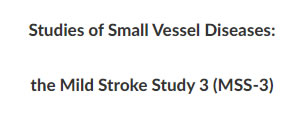
Why?
To understand more about strokes caused by small vessel disease in the brain.
What?
Participants will have MRI scans, cognitive testing and provide information about lifestyle factors. The study team predict that the rich data collected will enhance our understanding of small vessel disease and produce opportunities for further research.

Why?
Post-stroke fatigue is a significant persistent symptom in many patients.
What?
A randomised control study comparing telephone delivered, structured self-help versus provision of information only strategy.

Why?
Complications post-stroke impede recovery in elderly patients and there is a lack of preventative treatments.
What?
A randomised control study investigating whether commonly used medications can be prescribed and administered in anticipation of complications rather than after complications arise.

Why?
Monitoring and control of high blood-pressure is poor in many patients who have had a stroke due to a bleed in the brain.
What?
A randomised control trial investigating the use of home blood pressure monitoring or standard care.
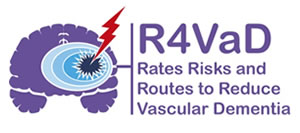
Why?
The links between Stroke, cognition and Vascular Dementia remain underdeveloped despite being closely related.
What?
R4VaD is a large multi-site observational study involving a sequence of cognitive tests and follow-up with stroke survivors of any severity.
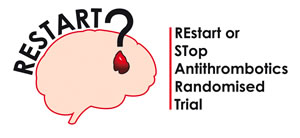
Why?
Many people with particular risk factors take medications such as aspirin to prevent strokes due to a blood clot. If these patients suffer a stroke due to bleeding in the brain then there is a dilemma whether to restart medications that ‘thin’ the blood.
What?
In order to gain a more definitive answer for this dilemma, participants were randomised to either restart or stop these medications. Participants were followed up on a long-term basis following their stroke.
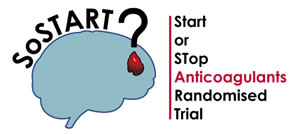
Why?
Patients with an irregular heartbeat can be at risk of a stroke due to a blood clot. Strokes can also be caused by bleeding in the brain. There is uncertainty concerning how to treat patients with both conditions.
What?
A randomised control trial investigating whether to treat these patients with medications to stop the blood clotting or not.

Why?
Small vessel disease leads stroke and dementia but the cause is unknown and there are no treatments.
What?
A short randomized control trial investigating the effect of three different blood pressure lowering drugs on brain blood vessel function on MRI scanning.















